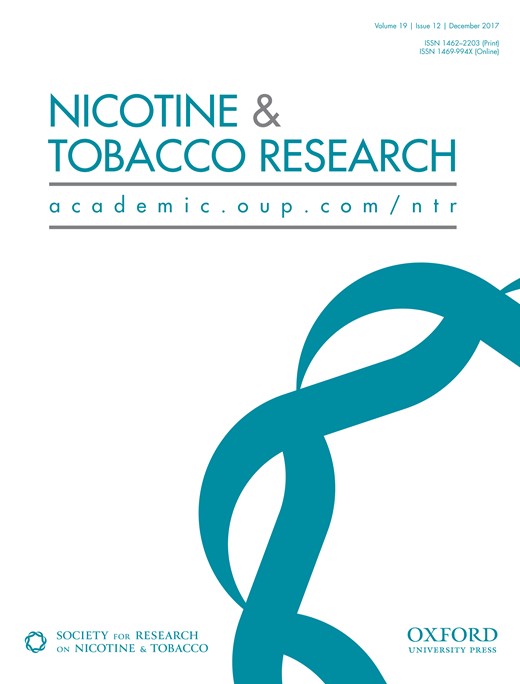-
Views
-
Cite
Cite
Marewa Glover, Bernhard H Breier, Linda Bauld, Could Vaping be a New Weapon in the Battle of the Bulge?, Nicotine & Tobacco Research, Volume 19, Issue 12, December 2017, Pages 1536–1540, https://doi.org/10.1093/ntr/ntw278
Close - Share Icon Share
Abstract
As the prevalence of tobacco smoking has been decreasing, obesity has increased. Obesity is set to overtake tobacco smoking in many developed countries as the primary preventable cause of conditions such as diabetes, cancer, and heart disease. Obesity is a complex condition that is challenging public health prevention efforts. Tobacco smoking mitigates weight gain through nicotine’s effect on the brain and metabolism. The prospect of gaining weight upon stopping smoking acts as an inhibitor to quitting and weight gain post-cessation is a common cause of relapse. Vaping nicotine is a new and controversial phenomenon that is highly attractive to smokers, but raises fears for health among public health and tobacco control advocates. There have been some reports among vapers that vaping is helping to mitigate weight gain after stopping smoking and or vaping is helping them to control their weight. There are several potential mechanisms by which vaping, in addition to the direct effects of nicotine, could facilitate weight control, these include taste perception, physical mouthfeel, and sensation and behavioral replacement. Research on the potential for vaping to support weight control may be worth pursuing given the human and economic costs of the global obesity epidemic and the failure of current obesity prevention strategies.
Obesity is set to overtake tobacco smoking in many countries as the primary cause of several high-cost diseases. Tobacco smoking mitigates weight gain through nicotine’s effect on the brain and metabolism. Smoking, however, is associated with many illnesses and premature death and appropriately has been discouraged leading to declining prevalence rates. This article explores the emerging perception that vaping electronic cigarettes with nicotine and flavors could deliver similar appetite and weight control effects as smoking. The potential to reduce risks associated with excess weight deserves exploration. An initial research agenda is suggested.






Comments